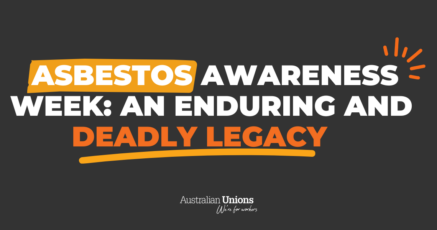Workplace mental health issues are costing the economy $200-220 billion per year according to a new report released by The Australia Institute and Centre for Future Work.
The report supports Australian Unions’ call for urgent action on workplace mental health, highlighting that such action is not only good for workers, but also for the economy.
Up to 45 per cent of mental health problems experienced by working people are attributed to workplace conditions according to the report, with initial data confirming a rise in mental health issues since the pandemic hit.
For Myrna Ellery, a financial sector worker and Health and Safety Representative (HSR), the alarming statistics come as no surprise. She told Australian Unions, “Mental health risk in the workplace is often invisible – it’s overlooked and under reported.”
In her role as HSR at a major bank, Ellery has seen first-hand the link between workplace conditions and mental health. She lists branch closures, reductions in staff, work intensification and unreasonable work targets as impacting the mental health of her colleagues.

“[The impacts] can be long-lasting and it’s not visible. It can impact people in a way they have no control of, and they often feel fearful to report it,” she said.
So how do we combat the rise and impacts of mental health risks in the workplace? According to ACTU Assistant Secretary Liam O’Brien, it comes down to a strengthening of our Work Health and Safety (WHS) laws.
“We want to see that Work Health and Safety treats both mental health and physical health equally. We know that the laws require at a high-level, employers to consider mental health but when it gets down into the detail, all of the regulations, codes of practice, requirements that ensure businesses take this seriously, are just not there when it comes to mental health,” he said.
Next week, on the 20th of May, WHS Ministers from the States, Territories and the Federal Government will vote on key changes to WHS laws. It’s an opportunity to strengthen and clarify the legal responsibilities of employers to minimise mental illness risks.
“We call on Minister Cash to use her deciding vote at the upcoming meeting of WHS ministers to ensure employers address mental health hazards the same as physical health hazards,” said O’Brien.
For workers like Myrna Ellery, such changes are long overdue. “It’s very sad that in 2021 we still need to be talking about this. We need to introduce some mental health safeguards and strategies and mitigate mental health conditions for people in the workplace.”








SHARE:
The cost of workplace mental health issues is staggering. Here’s how we can change it